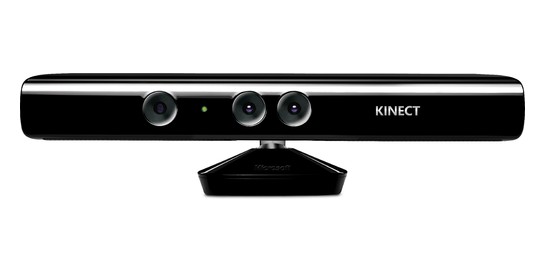Walking the floor at Microsoft’s conference center in Redmond yesterday for the conclusion of the three-month Kinect Accelerator startup program, it was remarkable to see not just tech demos but full-fledged companies being built on the company’s Kinect sensor.

- A Los Angeles-based startup called Styku has struck a deal to pilot its Kinect-powered virtual fitting room technology with a major retailer, a key step toward a broader rollout.
- Toronto-based GestSure Technologies, has just received U.S. clearance to start offering its Kinect-based, hands-free technology for surgeons in operating rooms.
- Ikkos Training, based in Seattle, has developed a Kinect app for virtual physical therapy, to supplement traditional sessions. The sensor can count repetitions, among other features.
- Nconnex, of Hadley, Mass., lets consumers scan a room with Kinect and insert virtual representations of furniture into the digital scene to see what it would look like in their space.
- New York-based Voxon is using Kinect to give artists and cinematographers the ability to create volumetric 3D productions reminiscent of the famous Princess Leia hologram from Star Wars.
- ZebCare, from Boston, is using the Kinect to let families check the status of independent seniors without invading their privacy, providing a blurred-out overhead view and analytics.
And those are just some of the examples — we saw more during an earlier tour of Microsoft’s South Lake Union offices. It’s easy to forget, less than two years ago, some of these same people were worried they might face the company in court instead.

“When we started hacking around, we felt a little illegal,” recalled Nicolas Burrus, who was one of the original Kinect hackers as the developer of the open-source RGBDemo toolkit for the Xbox 360 version of Kinect. “We were at the borderline of what we could do for something that was really designed for games.”
Burrus is one of the co-founders of Manctl, a startup based in Lyon, France, that has spent the past three months in Seattle as one of eleven companies in the Kinect Accelerator program, operated by Microsoft in conjunction with the TechStars incubator.
“When Microsoft decided to really embrace this movement and go with Kinect for Windows, and really help us go much further, we felt good about it, excited,” Burrus said. “Now it’s really amazing because we have access to the Kinect for Windows team, the Kinect hardware team, all the Microsoft people are helping us. It really feels like we are being recognized.”
TechStars and Microsoft were flooded with interest in the program after it was announced in November, receiving almost 500 applications and accommodating the demand by adding one more slot beyond the 10 they had originally planned. TechStars took minority equity stakes in the companies as part of the program, its traditional practice.
Each startup received $20,000 as part of the program, but Microsoft didn’t seek any equity.
 “We want to see these companies go out and be true proof points on their own,” said Michael Mott, a Microsoft Studios general manager.
“We want to see these companies go out and be true proof points on their own,” said Michael Mott, a Microsoft Studios general manager.
One of the additional benefits for Microsoft was the real-time feedback loop between the startups and the Kinect for Windows team, which was able to incorporate that feedback as they made updates to the Kinect software development kit.
Some of the startup founders who went through the Kinect Accelerator program said they are planning to remain in Seattle after the completion of the program to continue building their businesses here.
Having completed the Kinect Accelerator program, each of the eleven companies showed off its work to investors yesterday at the Demo Day, many of them seeking additional investments to fuel their next wave of growth.
David Cohen, the TechStars CEO, said during an interview with GeekWire that he was impressed enough with some of the startups to be considering additional investments of his own.
“It’s really interesting how one innovation can drive so much activity,” he said.





